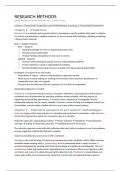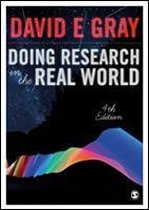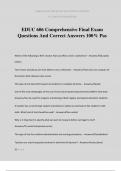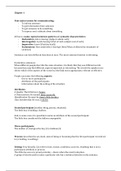Samenvatting
Summary Research Methods for Health Sciences Literature (Master Health Sciences VU)
- Instelling
- Vrije Universiteit Amsterdam (VU)
Summary of all literature used in Research Methods for Health Sciences (Book 'Doing Research in the Real World & additional literature). This document does not contain the lectures.
[Meer zien]







